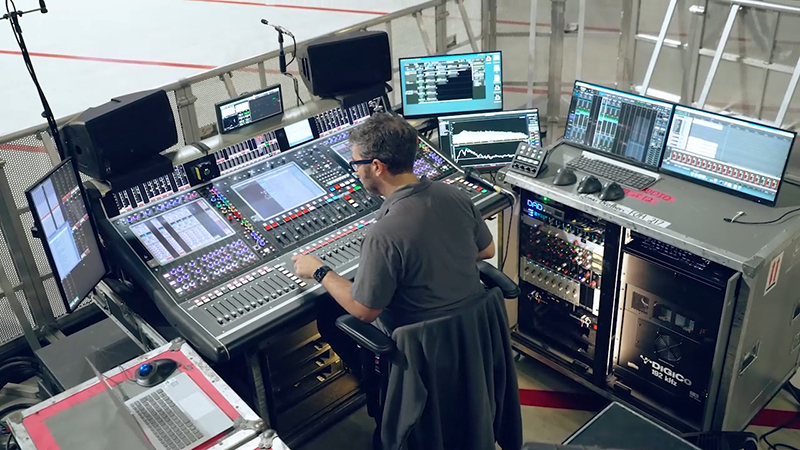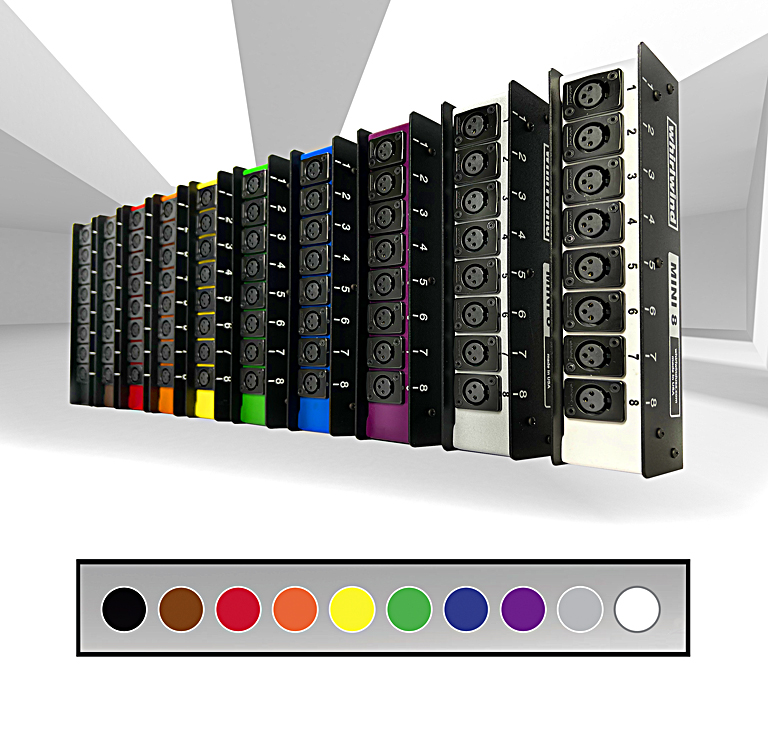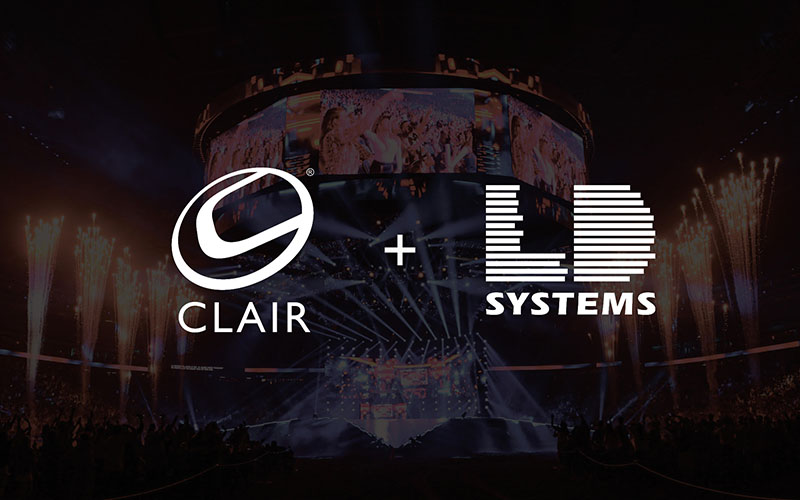
BROOKLYN, NY – Since it launched in 2015, National Sawdust has been heralded as both a venue with excellent acoustics and an incubator of new music talent. Looking ahead to its fifth season, National Sawdust further elevated its reputation through a partnership with Meyer Sound, unveiling their new LINA direct reinforcement, Constellation active acoustics and Spacemap dynamic spatial audio mixing systems.
More details from Meyer Sound (www.meyersound.com):

The enhanced sonic resources of the intimate auditorium — a capacity of about 200 seated — were showcased during September’s opening week celebrations honoring the 200th anniversary of the birth of composer/pianist Clara Schumann. Artists Timo Andres, Nico Muhly, Claire Chase, Theo Bleckmann and the Young People’s Chorus of New York City all leveraged the power and flexibility of the room’s new Meyer Sound technologies with adventurous performances of music of Clara Schumann in addition to leading female composers such as Paola Prestini, Ellen Reid, Missy Mazzoli, Emma O’Halloran and Meredith Monk.
“With Constellation and Spacemap, National Sawdust now offers an almost unlimited palette for sonic creativity, experimentation and inspiration,” says renowned composer Paola Prestini, co-founder and artistic director of National Sawdust. “Immersive sound is profound for both performers and audiences, changing our sense of space and perception and making art more of an intimate and communal experience. National Sawdust is thrilled to partner with Meyer Sound as a lab for learning, discovery and innovation in performance.”

Playing a pivotal role in forging the new partnership was Garth MacAleavey, technical director and chief audio engineer for National Sawdust.
“The way our programming has evolved in the last few years has been very forward-thinking,” he notes, “and now that we have these modular acoustic and spatial audio tools readily at hand, it’s like having the controls of a spaceship to blast off into the future. We are looking at a revolution in how artists create their music and how patrons experience it.”

The Constellation system comprises 86 small, full-range loudspeakers plus 16 compact subwoofers for extending the reverberation envelope to the lowest bass frequencies. Sixteen miniature microphones provide ambient sensing, sending signals to a D-Mitri digital audio platform that includes a dedicated DVRAS module for providing the desired room acoustic. Although the room has an excellent, well-balanced physical acoustic, it is limited by the dimensions and materials of the space. With Constellation, the room’s baseline RT60 of 0.6s can be extended and reshaped as desired. Twelve presets are pre-programmed, ranging from “classroom” and “spoken word” to “large concert” and “cathedral.” Selected acoustic presets may be tailored to suit the aesthetic of each piece within a concert.

The Spacemap capability employs the same D-Mitri DSP platform and 102 loudspeakers to offer dynamic multichannel panning throughout the space, with 32 input channels freely assignable to any or all of the discretely addressable loudspeakers. Spacemap panning can be pre-programmed or implemented on the fly using an iPad interface.

“National Sawdust is the first venue where front of house engineers have been trained from the outset to fully integrate the live spatial mix capabilities of Constellation and Spacemap while working with such a wide range of musicians,” says Meyer Sound Director, Spatial Sound, Steve Ellison, “I’m excited to watch this extraordinary sonic journey unfold.”

Ellison highlights how the new Meyer Sound systems were employed during the opening concerts. “With vocalist Theo Bleckmann, we used the space as a lab to try out a few of his ideas. Using a longer reverberation, Theo was able to work with his own voice to create improvised harmonies during an a capella work. Then he added in microphones with signal processing, and together we experimented with moving the evolving vocal phrases out from the stage, into the audience and around the room,” he recalls. “Paola Prestini’s work, Silent Light , featured a small wood and marble tower with microphone pickup that was sent through a regenerating delay. We used Spacemap with both the original and delayed signals, incorporating a spiraling move on each sound but at different rates, so the sounds climbed up and down the walls, overlapping each other. For the Young People’s Chorus of New York City, who surrounded the audience, we extended the reverberation time to 2.4 seconds, which was very effective.”

Even a musician’s body movements can be sonically transmuted, according to Ellison. “With Claire Chase, we used Spacemap with both the delay returns from her flute as well as her backing track. Her body movement informed the spatial mix of the flute delay, so it seemed she was ‘throwing’ her flute sound out into the room.”

“With Constellation and Spacemap you have this marvelous sonic toolkit,” comments flutist Chase, “so anything is possible. To have that capability as a point of departure for making something new, for creating new collaborations…I mean, what fun! The sky’s the limit.”

For concerts that benefit from direct amplification, National Sawdust also offers a new self-powered Meyer Sound system based on LINA line array loudspeakers, the smallest member of the LEO Family. In addition to 10 LINA loudspeakers, the system incorporates two 750-LFC low frequency control elements and two UPJ-1P loudspeakers. All audio systems were installed by Sound Associates of Yonkers, New York under the direction of Dominick Sack.

The new relationship with National Sawdust is the latest in a number of partnerships that directly connect Meyer Sound to leading arts, entertainment and educational institutions worldwide. The partnerships are established under the personal direction of company co-founders John and Helen Meyer.
“Both National Sawdust and Meyer Sound are fearless in terms of challenging the status quo in our respective fields,” says Executive Vice President Helen Meyer. “By putting the most advanced acoustic technology into the hands of these amazingly innovative artists, we have created an incredibly powerful laboratory for new ideas. I look forward to an extraordinary collaboration with the National Sawdust community of creators.”
National Sawdust retains the name of the industrial building it now occupies in Brooklyn’s Williamsburg district. Purchased by philanthropist Kevin Dolan, the structure was gutted and rebuilt following the design of Bureau V Architects. Global consulting firm Arup designed the original acoustics of the performance space, with a view towards future spatial audio system integration. These architectural acoustics and room finishes provided an excellent basis for Constellation and allowed for transparent integration of the system loudspeakers behind the room’s acoustically transparent fabric panels.
National Sawdust’s mission is rooted in music discovery that is open, inclusive and based in active mentorship of emerging artists while building new audiences and communities of music devotees.



